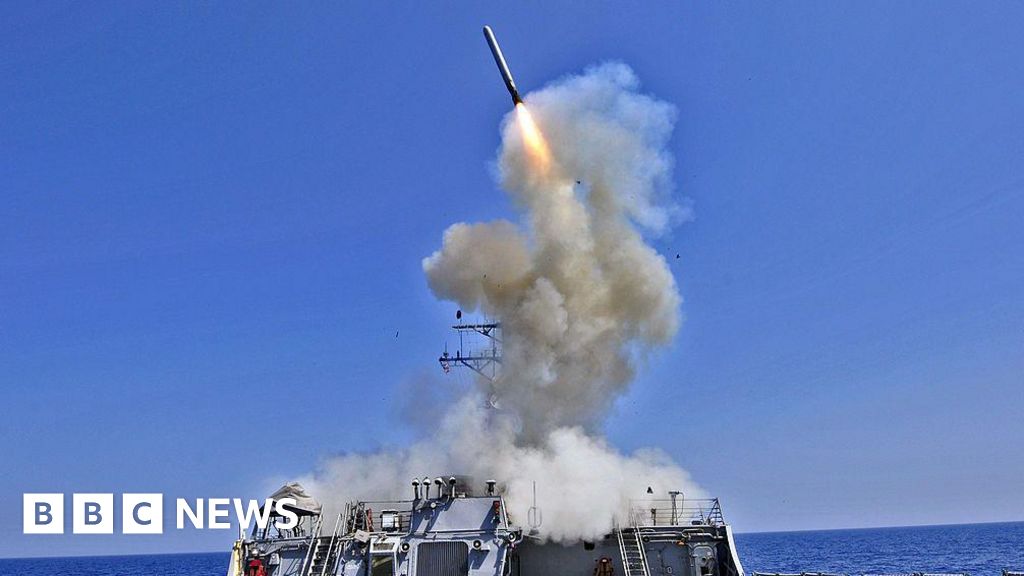Image source, U.S. Navy via Getty Images
- author, Paul Kirby
- role, BBC News
According to a decision announced at the NATO summit marking the 75th anniversary of the founding of the North Atlantic Treaty Organization (NATO), for the first time since the Cold War, US long-range missiles will be routinely deployed in Germany from 2026.
Such missiles were banned under a 1988 treaty between the United States and the former Soviet Union, but that agreement collapsed five years ago.
Russian Deputy Foreign Minister Sergei Ryabkov said Moscow would respond with a “military response to new threats.”
“This is just part of escalating tensions,” he argued, accusing NATO and the United States of trying to intimidate Russia.
The joint US-German statement clarified that the “intermittent” deployment of the missiles was initially intended to be temporary but would later become permanent as part of US commitments to NATO and a European “integrated deterrent”.
Speaking at a NATO summit in Washington, German Defense Minister Boris Pistorius said the idea behind the U.S. plan was to encourage Germany and other European countries to invest in the development and procurement of long-range missiles themselves.
He explained that the temporary deployment of U.S. weapons would give NATO allies time to prepare, saying, “We’re talking here about a growing capability gap in Europe.”
Such missiles were banned under the Intermediate-Range Nuclear Forces (INF) Treaty, signed at the end of the Cold War and covering ground-launched missiles with ranges of 500 to 5,500 kilometers (310 to 3,400 miles).
Russian President Vladimir Putin feels the agreement is too restrictive, and in 2014 the United States accused him of violating it with new nuclear-capable cruise missiles.
The United States finally withdrew from the treaty in 2019, followed by Russia.
Germany’s Green Party politicians criticized Chancellor Olaf Scholz for agreeing to the deployment of US missiles on German territory.
The Greens are part of Chancellor Olaf Scholz’s ruling coalition, and security spokeswoman Sara Nanni expressed frustration that Scholz had not commented on the decision.
“It can increase fear and leave room for disinformation and incitement,” she told Rheinpost.


